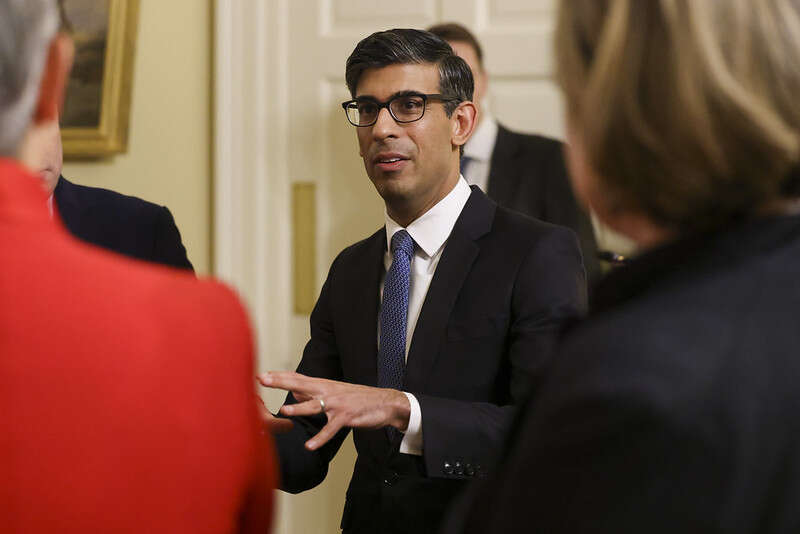The UK government has unveiled a new Science and Technology Framework, a ten-point plan which Prime Minister Rishi Sunak says will help cement the UK’s place as a global science and technology superpower by 2030. It comes with what the government says is £370m in new funding for areas such as quantum computing and artificial intelligence.

The new Science and Technology Framework is the first major piece of work from the newly created Department for Science, Innovation and Technology (DSIT) and “will challenge every part of government to better put the UK at the forefront of global science and technology”, according to a DSIT statement.
“The government will foster the right conditions for industry innovation and world-leading scientific research to deliver high-paid jobs of the future, grow the economy in cutting-edge industries, and improve people’s lives from better healthcare to security,” the statement says.
The prime minister and his chancellor, Jeremy Hunt, have put tech at the centre of their plans for the future of Britain, with the latter declaring he wants the nation to be home to the “world’s next Silicon Valley”.
Sunak said: “In an increasingly competitive world, we can only stay ahead with focus, dynamism and leadership.
“That’s why we’re setting out ten key actions under a bold new plan to cement our place as a global science and technology superpower by 2030 – from pursuing transformational technologies like AI and supercomputing to attracting top talent and ensuring they have the tools they need to succeed.
“The more we innovate, the more we can grow our economy, create the high-paid jobs of the future, protect our security, and improve lives across the country.”
What’s in the government’s Science and Technology Framework?
The framework includes a £250m investment into three technology areas where the government says the UK has global leadership: AI, quantum technologies and engineering biology. DSIT says these technologies can help a range of industries tackle the biggest global challenges like climate change and health care. The trio are part of five key technologies identified in the framework, along with semiconductors and future telecoms.
Content from our partners

Addressing ESG to build a better, more sustainable business

Empower finance leaders to become agents of change

The role of modern ERP in transforming the distribution and logistics sector
It says it plans to set up an Exascale supercomputing facility and a programme to provide the compute power required to back AI research. Meanwhile, it will pump £9m in government funding into a quantum computing research centre being established by quantum start-up PsiQuantum in Daresbury, Cheshire.
View all newsletters Sign up to our newsletters Data, insights and analysis delivered to you By The Tech Monitor team
Elsewhere, the government will use £117m of existing funding to create “hundreds” of new PhDs for AI researchers and will set aside £8m to find the next generation of AI leaders around the world to do their research in the UK.
Tech secretary Michelle Donelan said: “Today we are putting the full might of the British government and our private sector partners behind our push to become a scientific and technological superpower, because only through being world leaders in future industries like AI and quantum will we be able to improve the lives of every Briton.”
Will the government’s Science and Technology Framework make a difference?
While the increased investment is likely to be welcomed by the tech industry, whether it will make a tangible difference to the UK’s standing when it comes to tech is questionable.
The size of the sums being invested is dwarfed by the multi-billion investments being made in foundational technologies like AI by the US, China and Europe. As part of the framework, the government has added an additional £10m to the UK Innovation and Science Seed Fund, taking its value to £50m. The US government’s equivalent fund is worth £200m annually. The US, China and Europe are also pumping billions into their quantum computing and semiconductor industries through government contracts.
Many in the sector have also been dismayed by government policy around tech, which in recent months has been characterised by delay and confusion. In November, the treasury u-turned on plans to scrap reforms to the IR35 tax rules. The reforms are likely place a significant additional administrative burden on tech companies who work with contractors when they are introduced next month
The government paused work on the Data Protection and Digital Information Bill, the UK’s post-Brexit replacement for GDPR, to allow further consultation, though it is thought an announcement on how the bill is progressing could be made later this week. The Online Safety Bill, the flagship legislation designed to ensure the safety of citizens online, has been dubbed “not fit for purpose” by IT professionals responding to a survey from industry group BCS. Fears have also been raised over the threat it poses to the security of end-to-end encryption.
MPs have also accused it of “overlooking” the UK semiconductor industry, with a long-promised blueprint for the industry, seen as strategically important by governments around the world, yet to materialise.
Read more: Could the UK government build a large language AI model to rival ChatGPT?
